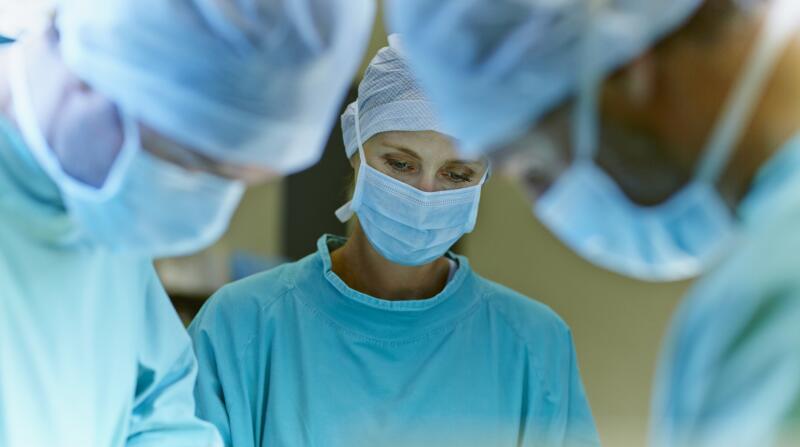8 Possible Complications of Fibroids

Medically Reviewed By William C. Lloyd III, MD, FACS
Written By Stephanie Watson on November 11, 2021
-
 What You Should Know About Uterine FibroidsUterine fibroids are growths that form in and on the uterus. Doctors sometimes call them myomas or leiomyomas. Most women will get one or more fibroids at some time in their life, usually in their 30s or 40s, but many won’t have any symptoms. Black women are more likely than white women to experience fibroids symptoms, and those symptoms are often more severe. Fibroids typically stop growing by the time you reach menopause. These growths are not cancer, and they aren’t life-threatening, but they can grow large enough to be uncomfortable. Some of the more common fibroids complications include pain, heavy periods, and bloating.
What You Should Know About Uterine FibroidsUterine fibroids are growths that form in and on the uterus. Doctors sometimes call them myomas or leiomyomas. Most women will get one or more fibroids at some time in their life, usually in their 30s or 40s, but many won’t have any symptoms. Black women are more likely than white women to experience fibroids symptoms, and those symptoms are often more severe. Fibroids typically stop growing by the time you reach menopause. These growths are not cancer, and they aren’t life-threatening, but they can grow large enough to be uncomfortable. Some of the more common fibroids complications include pain, heavy periods, and bloating. -
 1. Fibroids can hurt—a lot.Some women can’t feel their uterine fibroids and may not even realize they have them. But if fibroids grow very quickly or break down inside your uterus, they can be quite painful. Some fibroids are attached to the uterus by a stem. They can twist around on that stem, similar to a grape twisting around on its stem. That twisting motion can be painful. Fibroid pain comes in many forms, including severe menstrual cramps, discomfort during sex, lower back pain, or sharp pain in your belly. In some cases, pain associated with your period can be so intense it inhibits your ability to perform at home, work, or school. Fortunately, treatment is available to improve symptoms, so there’s no need to accept this disruption to your life.
1. Fibroids can hurt—a lot.Some women can’t feel their uterine fibroids and may not even realize they have them. But if fibroids grow very quickly or break down inside your uterus, they can be quite painful. Some fibroids are attached to the uterus by a stem. They can twist around on that stem, similar to a grape twisting around on its stem. That twisting motion can be painful. Fibroid pain comes in many forms, including severe menstrual cramps, discomfort during sex, lower back pain, or sharp pain in your belly. In some cases, pain associated with your period can be so intense it inhibits your ability to perform at home, work, or school. Fortunately, treatment is available to improve symptoms, so there’s no need to accept this disruption to your life. -
-
 2. They can make your belly swell.Uterine fibroids vary in size from 1 millimeter—less than the thickness of a credit card—to 20 centimeters across. They may cluster together in groups inside and outside of your uterus. If you have several fibroids or they’re very large, they’ll make your belly swell, sometimes to the point where you look pregnant. Fibroids can also make you feel bloated and full, like you’ve just eaten a large meal. The swelling could make it harder for your Ob/Gyn to see your uterus during a pelvic exam.
2. They can make your belly swell.Uterine fibroids vary in size from 1 millimeter—less than the thickness of a credit card—to 20 centimeters across. They may cluster together in groups inside and outside of your uterus. If you have several fibroids or they’re very large, they’ll make your belly swell, sometimes to the point where you look pregnant. Fibroids can also make you feel bloated and full, like you’ve just eaten a large meal. The swelling could make it harder for your Ob/Gyn to see your uterus during a pelvic exam. -
 3. Your periods may be heavier than usual.Heavy periods and bleeding between periods are common fibroids complications. Doctors aren’t sure why women with fibroids bleed more than usual. One theory is that these growths press on the uterine lining and affect the flow of blood. The size and number of fibroids you have may not necessarily determine the amount of bleeding. In severe cases, heavy menstrual bleeding can lead to anemia: a drop in red blood cells that causes symptoms like dizziness, weakness, and shortness of breath. Anemia should be treated as soon as possible and with appropriate care, can resolve. Rarely, women with extremely heavy periods will need a blood transfusion.
3. Your periods may be heavier than usual.Heavy periods and bleeding between periods are common fibroids complications. Doctors aren’t sure why women with fibroids bleed more than usual. One theory is that these growths press on the uterine lining and affect the flow of blood. The size and number of fibroids you have may not necessarily determine the amount of bleeding. In severe cases, heavy menstrual bleeding can lead to anemia: a drop in red blood cells that causes symptoms like dizziness, weakness, and shortness of breath. Anemia should be treated as soon as possible and with appropriate care, can resolve. Rarely, women with extremely heavy periods will need a blood transfusion. -
 4. A fibroid can twist, which may require surgery.As a fibroid twists around on its stalk, it not only causes pain, but it also could cut off its own blood supply. The medical term for this is a pedunculated fibroid. Often this is a good thing, because the loss of blood causes the fibroid to shrink on its own. Uterine artery embolization, a treatment for uterine fibroids, works by directly cutting off the blood supply to the fibroids. Rarely, a twisted fibroid may cause problems and need surgery to correct.
4. A fibroid can twist, which may require surgery.As a fibroid twists around on its stalk, it not only causes pain, but it also could cut off its own blood supply. The medical term for this is a pedunculated fibroid. Often this is a good thing, because the loss of blood causes the fibroid to shrink on its own. Uterine artery embolization, a treatment for uterine fibroids, works by directly cutting off the blood supply to the fibroids. Rarely, a twisted fibroid may cause problems and need surgery to correct. -
 5. You may have to urinate more often.Your uterus sits right on top of your bladder. That’s an inconvenient location when fibroids are growing. Their weight can put pressure on your bladder. You may find that you have to go to the bathroom more often. When you do go, the fibroids may prevent you from fully emptying your bladder. As a result, urine sits inside your bladder. Bacteria can eventually grow inside it and cause a urinary tract infection.
5. You may have to urinate more often.Your uterus sits right on top of your bladder. That’s an inconvenient location when fibroids are growing. Their weight can put pressure on your bladder. You may find that you have to go to the bathroom more often. When you do go, the fibroids may prevent you from fully emptying your bladder. As a result, urine sits inside your bladder. Bacteria can eventually grow inside it and cause a urinary tract infection. -
-
 6. Fibroids can make it harder to get pregnant for a small percentage of people.A fibroid can change the shape of your cervix and uterus or block your Fallopian tubes, making it harder for sperm to reach your egg. These growths can also change the flow of blood to your uterus, making it harder for an embryo to implant in your uterine wall. Though many women with fibroids have no problem getting pregnant, 5 to 10% of women who are infertile have fibroids—which may not necessarily be the only reason they struggle with infertility. Larger fibroids or ones that sit inside your uterus are more likely to affect your fertility. Getting your fibroids treated should increase your odds of conceiving.
6. Fibroids can make it harder to get pregnant for a small percentage of people.A fibroid can change the shape of your cervix and uterus or block your Fallopian tubes, making it harder for sperm to reach your egg. These growths can also change the flow of blood to your uterus, making it harder for an embryo to implant in your uterine wall. Though many women with fibroids have no problem getting pregnant, 5 to 10% of women who are infertile have fibroids—which may not necessarily be the only reason they struggle with infertility. Larger fibroids or ones that sit inside your uterus are more likely to affect your fertility. Getting your fibroids treated should increase your odds of conceiving. -
 7. They may make pregnancy riskier.Up to 12% of pregnant women have uterine fibroids, and they don’t always cause problems. The worry during pregnancy is that fibroids will grow so large that they crowd out the baby, leading to a miscarriage or preterm birth. A fibroid can also move the baby into a position that makes delivery difficult or dangerous, in which case you’ll need a C-section. You might also need a C-section after having surgery to remove fibroids. In some cases, fibroids can cause severe pain in pregnant women. Talk to your Ob/Gyn about ways to minimize your risks if you plan to get pregnant.
7. They may make pregnancy riskier.Up to 12% of pregnant women have uterine fibroids, and they don’t always cause problems. The worry during pregnancy is that fibroids will grow so large that they crowd out the baby, leading to a miscarriage or preterm birth. A fibroid can also move the baby into a position that makes delivery difficult or dangerous, in which case you’ll need a C-section. You might also need a C-section after having surgery to remove fibroids. In some cases, fibroids can cause severe pain in pregnant women. Talk to your Ob/Gyn about ways to minimize your risks if you plan to get pregnant. -
 8. They can (very rarely) be cancerous.Uterine fibroids are almost always benign (noncancerous). Fewer than 1 out of every 1,000 of these growths is a type of cancer called leiomyosarcoma. Just because you have fibroids doesn’t mean you’re going to develop cancerous ones, and fibroids also don’t increase your risk of uterine cancer in general. But if you already have uterine cancer, undergoing a type of surgery called laparoscopic power morcellation to remove fibroids could spread the cancer to other parts of your belly and pelvis. Your doctor will work with you to determine the best course of action.
8. They can (very rarely) be cancerous.Uterine fibroids are almost always benign (noncancerous). Fewer than 1 out of every 1,000 of these growths is a type of cancer called leiomyosarcoma. Just because you have fibroids doesn’t mean you’re going to develop cancerous ones, and fibroids also don’t increase your risk of uterine cancer in general. But if you already have uterine cancer, undergoing a type of surgery called laparoscopic power morcellation to remove fibroids could spread the cancer to other parts of your belly and pelvis. Your doctor will work with you to determine the best course of action.
Fibroids Complications | Heavy Menstrual Bleeding
















